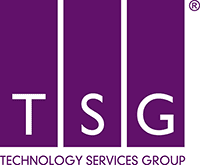How much did the Facebook outage really cost?
In news that spread like wildfire, ironically on competitor platforms including Twitter, LinkedIn and Snapchat, Facebook and its family of apps experienced an outage of up to 14 hours on Wednesday 13th March.
Naturally, the functional social media channels were awash with memes about how people couldn’t possibly cope without flicking mindlessly through artsy landscape shots or posts about what their friends had for dinner.
But what about the business cost of this outage?
The inability to access Facebook, Instagram or Messenger for a few hours probably didn’t have a monumental impact on the average user besides a bit of boredom. But for both Facebook itself and the businesses that rely on the platforms for advertising, it was quite the hit.
According to Yahoo Finances, Facebook brings in $189 million a day in advertising revenue (about £142 million), meaning it could have lost around £70-80 million in this outage, while its share prices dropped 2.3% in the immediate aftermath.
With all of its recent data scandals, it might be hard to feel sorry for Facebook. But spare a thought for its customers.
More than 6 million businesses advertise on Facebook and its suite of apps, with many SMBs dependent on these channels as their main source of revenue. Jason Wong, owner of Wonghaus Ventures, told The Verge that his business lost around $10,000 in the few hours of downtime. Other small business owners took to Twitter to vent their frustrations about losing the majority of their business for the day.
Instead of dismissing the Facebook outage, the key question to ask yourself is: how would downtime affect my business?
You might not be powered largely by advertising like Facebook, but your customers could still be affected by your downtime. For example, if you’re experiencing downtime with your telephony system or contact centre, your customers may not be able to contact you. Depending on the nature of your business, this could be disastrous for them and could result in lost money for them and a lost customer for your business.
There’s no doubt that downtime has a significant financial cost for your business. If your workers are unable to access the applications they use day-in, day-out like your CRM or ERP solutions, their productivity will take a massive hit. And as we know, time is money.
If your business charges hourly, such as a solicitors firm, that’s very literally the case. If you charge £300 per hour and your business hires 100 solicitors, that’s £30,000 down the pan in only an hour. That’s a lot of money for a medium-sized firm to lose in an hour.
Your business could experience downtime for a number of reasons, and it can be tricky to find the dedicated resource needed to address your issues and ensure maximum uptime. The foundations of your infrastructure might not be right, meaning they can’t take the strain of your applications or can’t be built upon.
Your business might experience an unavoidable natural disaster like a flood that takes down your server; if you don’t have a failsafe backup, your entire business is out of action and begins to haemorrhage money. Our customer Chadwick Lawrence was hit badly by flooding so severe it destroyed one of the company’s key servers in 2015. However, thanks to the disaster recovery solution put in place by TSG, the company experienced ZERO downtime – in fact, some employees weren’t even aware that the disaster had struck, so smooth was the business continuity.
If you don’t have the dedicated in-house resources, or if those resources are over-stretched, it can be difficult to identify the cause of downtime and put in place the appropriate measures to minimise or eliminate it entirely. That’s why TSG has hundreds of experts with years of industry experience ready to do that for you.
If your foundations aren’t right – for example, your servers and hardware are outdated, or you don’t have a comprehensive disaster recovery plan – you can’t build upon them and run your business effectively. But you don’t need to worry about that with an IT services partner like TSG. You can take the burden away from in-house IT teams to allow your people to focus on adding value and driving your business forward. What’s more, you can actually save money on overhead costs, while a guaranteed availability SLA ensures your business doesn’t lose money unnecessarily.
The now-infamous NotPetya ransomware attack that wreaked havoc in 2017 cost Merck and Maersk over £500 million collectively through downtime. Maersk couldn’t carry out its core service of shipping products, leaving its customers faced with the option of delayed delivery of essential cargo or paying exorbitant fares to get them fast-tracked with another provider. For Merck, the bulk of lost revenue was down to lost sales, but its manufacturing processes were ground to a halt too.
Can you afford to let your business operations grind to a halt?

